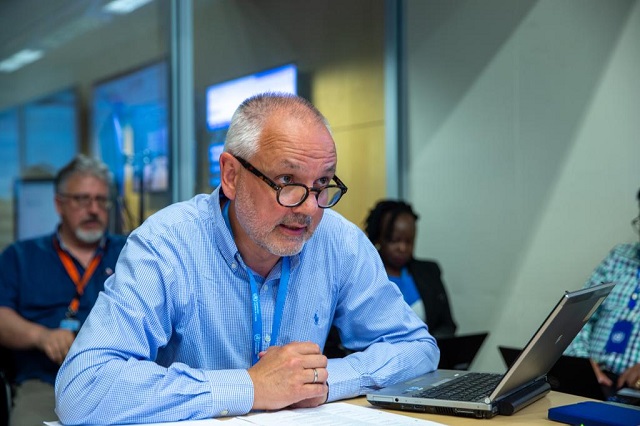
Geneva, Switzerland | AFP | The World Health Organization emergency committee was meeting Friday on whether to declare a raging Ebola epidemic an international threat, after an outbreak that began in Democratic Republic of Congo crossed into Uganda.
The WHO panel, which was formed in 2005, has used the label “public health emergency of international concern” only four times previously.
Those included the H1N1, or swine flu, pandemic of 2009, the spread of poliovirus in 2014, the Ebola epidemic that devastated parts of West Africa from 2014 to 2016 and the surge of the Zika virus in 2016.
The current Ebola crisis, which began in eastern DRC last August, has recorded more than 2,000 cases, including 1,411 deaths.
The WHO panel, officially known as the International Health Regulations and Emergency Committee, was meeting by teleconference with experts connecting from Geneva and around the globe.
WHO chief Tedros Adhanom Ghebreyesus, who is in DRC reviewing the Ebola response, will make the final decision on an emergency declaration based on the committee’s advice.
WHO held off making the emergency call at previous meetings in October and April, in part because Ebola had not spread internationally.
– Uganda cases confirmed –
That changed this week with confirmation that the virus had reached western Uganda, where it has claimed two lives so far.
A Congolese woman — who is married to a Ugandan — as well as her mother, three children and their nanny had travelled to DRC to care for her ill father, who later died of Ebola.
The WHO said 12 members of the family who attended the burial in Congo were placed in isolation in the DRC, but six “escaped and crossed over to Uganda” on June 9.
The next day, a five-year-old boy was admitted to hospital in Bwera, a border town, vomiting blood before he died. Tests confirmed he had Ebola and the family was placed in an isolation ward.
His three-year-old brother was also confirmed to have Ebola, as was their grandmother, who died late Wednesday.
Speaking from western Uganda’s Kasese district, a senior Red Cross official told AFP that “the biggest challenge” was ensuring robust monitoring along the porous border with DRC.
“People are continuing to come in to the country and not passing through the areas where screening is taking place, because screening has been instituted along certain points of entry but not all the points,” said Josephine Okwera, the director of health and social services for the Ugandan Red Cross.
The mere fact that cases have crossed a border does not automatically compel WHO to make the emergency declaration, especially as the epidemic is still confined to one contiguous region.
But invoking the emergency provisions would entail additional measures to manage the outbreak, including a possible call for “immediate international action”, according to the UN health agency.
– Restive region –
Health officials had initially hoped that they could contain the outbreak with help from a new vaccine, which has now been given to more than 130,000 people in DRC.
But chronic violence and militia activity in the affected eastern DRC provinces of Ituri and North Kivu as well as hostility to medical teams among some people in the region have hampered the response.
WHO has also accused political leaders in the affected region of manipulating the Ebola issue to turn people against health workers.
Ebola spreads among humans through close contact with the blood, body fluids, secretions or organs of an infected person.
Chimpanzees, gorillas, monkeys, forest antelope and porcupines can also become infected, and humans who kill and eat these animals can catch the virus through them.
The current outbreak is the worst on record after an epidemic that struck mainly in Liberia, Guinea and Sierra Leone between 2014-2016, leaving more than 11,300 people dead.
 The Independent Uganda: You get the Truth we Pay the Price
The Independent Uganda: You get the Truth we Pay the Price



Thanks to the WHO for the responses as always.